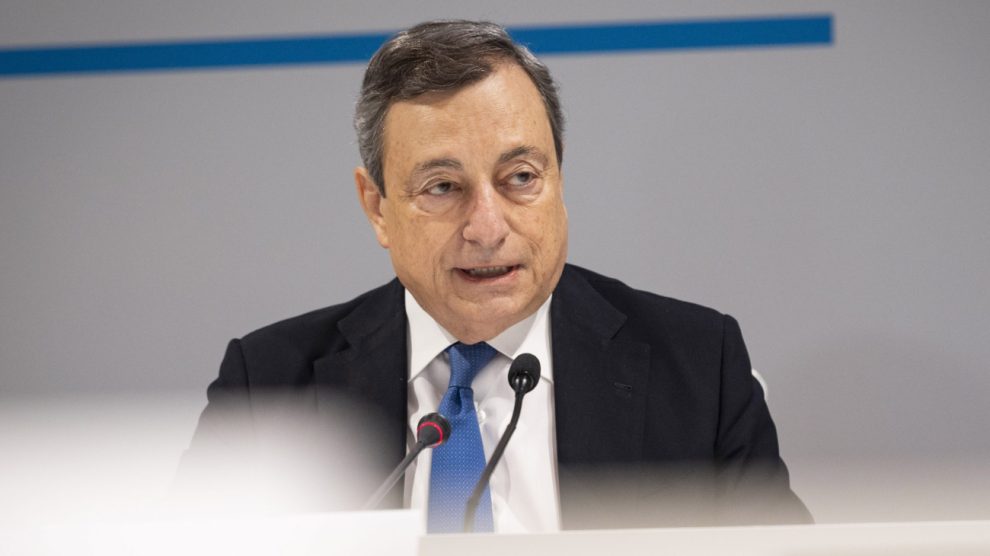Draghi’s government may soon be over. On Wednesday, the Italian Prime Minister will appear before the Senate to request a vote of confidence. If the Five Star Movement, led by former PM Giuseppe Conte, were to abstain or vote against, Mr Draghi, former head of the ECB, would resign.
- Here’s all you need to know about how the government crisis came to be.
Now it’s up to two parties. Even without the votes of the 5SM – which was heavily resized when FM Luigi Di Maio exited with 70 MPs –, the PM would still enjoy a large parliamentary majority. Thus, the ball is in the court of the other two parties weighing the exit: Matteo Salvini’s League and Silvio Berlusconi’s Forza Italia.
(Nearly) everyone is cheering for Draghi. Over 1,200 Italian mayors, as well as dozens of trade associations and industrialists, signed an open letter of support. And a wave of support from the international community – from the EU Commission to the White House, from the Elysée Palace to Spanish Prime Minister Pedro Sanchez, to the Ukrainian government – swept the newspapers.
What will happen on Wednesday? Here are three scenarios listed in descending order of probability.
– PM Draghi resigns irrevocably, appearing before Parliament to announce his choice. There will be no vote of confidence. An “electoral government” is formed with a caretaker PM to ferry Italy to the polls, probably in early October.
– A new government led by PM Draghi is born, but without Mr Conte and the 5SM. Italy holds elections in the spring of 2023, the legislature’s natural end. The 5SM ends up in opposition (a new internal split, in this case, would be likely) together with Giorgia Meloni’s Brothers of Italy.
– The 5SM backtracks and votes to support PM Draghi. All the parties in his majority unite and confirm their confidence. Elections will take place in 2023.
The expert’s take: Decode39 reached out to Alec Ross, former advisor to Hillary Clinton and Barack Obama. He likened the collapse of Mr Draghi’s government to Italy going from winning the European championship to then losing to North Macedonia and not entering the World Cup.
- “Giuseppe Conte has scored an own-goal. This is great news for Vladimir Putin because it weakens a strong Italy,” he noted. “The Draghi government has been doing a good job in finding solutions to the energy crisis and reducing dependency on Russian gas.”
- Mr Ross believes that anyone stepping into Mr Draghi’s role would have difficulty matching his performance. “If there is no Draghi government, gas will cost more in the winter. Economic growth will be slower. Necessary government reforms will be halted. And for this, we can thank politicians who brought down the government and put personal ambition above the well-being of 60 million Italians.”
Russia and China cheer for chaos. Both are watching the Italian crisis, and two analyses published on Tass and the Global Times – affiliated with the Russian and Chinese governments, respectively – agree on its alleged causes.
- Tass blamed “the heavy financial burden [owed to energy costs and record inflation] that Rome cannot bear at this stage.”
- “[D]iplomatic miscalculations and wrong policies – for example, Italy’s tough approach against Russia – must have exacerbated [Mr Draghi’s] disadvantage,” wrote the Global Times.





